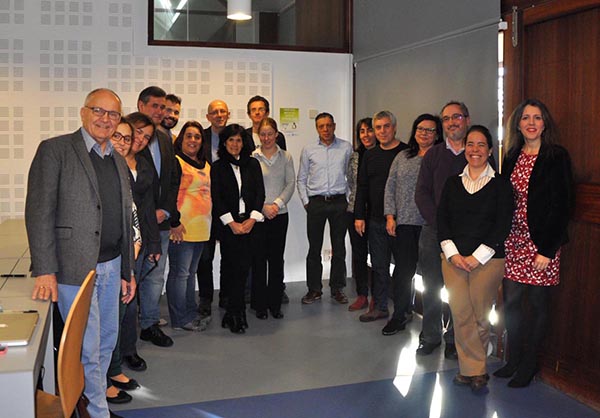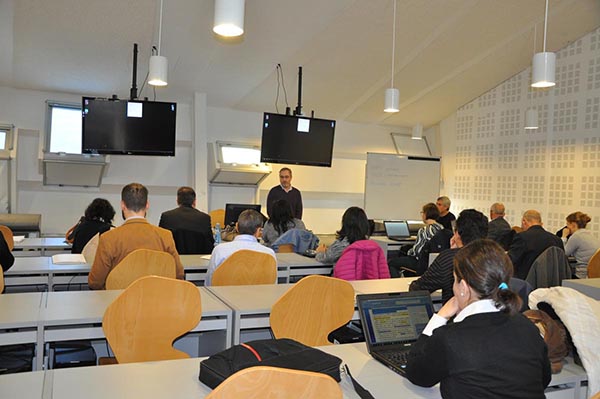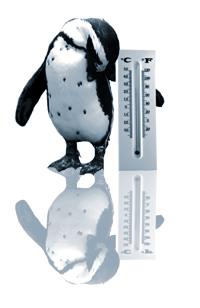
The methodology Climantica will be the basis for creating a different multilingual educational material which can make the youth aware of the importance of research on the impacts and mitigation of climate change in the oceans. It also contributes its participation models of educational communities to transfer to society educational answers to climate change through the educational communities. To transfer this pedagogical project Climántica, through its coordinator educational center for the educational network Climántica, IES Virxe do Mar, allied with a group of scientists and teachers from Spain, Portugal, Great Britain and Poland, to form the strategic alliance Educo2Cean-STS (Education models to transmit to society the challenge of global change in the ocean) funded by the European Union with 249,000 euros in the program Erasmus + 2016.

The project Climántica thus starts his second European project. The first one in which it was involved, was the ERDF Interreg CLIMATLANTIC, for which it drew educational products, such as the video game CLMNTK or the book Does climate change really change?, which are widely used in some European countries. We achieved that first European project thanks to the Ministry of Environment of the Government of Galicia. This second one will be achieved thanks to the educational institution that is the epicenter school network of this project, the IES Virxe do Mar in Noia(Spain). From this schooling and pedagogical field, the main challenge of the Climántica project is to deploy its methodology to create a textbook, develop a collaborative website and organize international conferences and campus involving students and teachers who encourage and coach students as authors of products which enhance awareness of the problem.
The strategic alliance is completed by their leader before the European Union, the Portuguese Association for Environmental Education - ASPE (Portugal) that contributes its experience of coordination and dissemination of educational networks both at a national and a European level ; the University of Vigo, the institutional headquarters of The Excellence Campus do Mar and Marine Alliance for Science and Technology of Scotland, two research consortia that provide scientific data on climate change in the ocean; Ciencia Viva - National Agency for scientific and Technological Culture (Portugal) that provides its experience in popular science; Caretakers of the Environment International (Poland) that transfers and adapts to the Baltic all development done over the Atlantic, and the IES Ribeira do Louro Porriño that contributes its vast experience in administrative management of such projects.

The meeting to launch this project took place in the Miralles IV building of Vigo University. The meeting was opened by the Vice Chancellor for International Relationships and University Extension of Vigo University, Manuel Fernández Iglesias. This institution also participates in the present project throught “Campus del Mar”. At that initial meeting, apart from the opportunity of meeting each other, partners started fixing responsibilities and coordinating the timing of the various actions to be carried out and setting a schedule of performances.
Throughout the two-year project the partners intend to create a textbook which has a global character and could be applicable in any European education system. It will be published both in paper and in electronic format and it will be coordinated from the framework of this project and it will also be available in the different languages of the participating countries. Its structure will be cross curricular and its contents will include all the contemporary scientific knowledge related to climate change in the ocean. This content will be completed, expanded and updated through an electronic magazine and a website in which all students will be able to participate, and that also will be coordinated from the frame Climantica.
The main target group of the project are European students of upper secondary education (15-18 years old) and the scientific-didactic book is addressed to them. Each partner will adapt this material to his basic secondary students (12-14 years old). All these students between 12 and 18 years old, will have the opportunity to present their contributed papers during the virtual youth congress. They will also participate in the communities 2.0 and will also improve their scientific and communicative skills during the international youth campus as well as knowing different cultures and practices, at the same time that they take part in exchange programs with other countries participating in the project. Their teachers will be the recipients of different training initiatives aimed at providing them with the knowledge necessary to convey to the students the key competences they need for their participation in the development of the present project.



